TPCB Faculty
Harel Weinstein, DSc
Weill Cornell Medical College
Education
D.Sc., 1971, Technion-Israel Institute of Technology
M.Sc., 1968, Technion-Israel Institute of Technology
B.Sc., 1966, Technion-Israel Institute of Technology
Research Topics
- Bioactive Small Molecules
- Rational drug design
- Macromolecular Structure and Function
- Single molecule methods
- Computational Chemistry
- Protein modeling
Therapeutic Areas
- Cancer
- Neuroscience
 The Weinstein lab studies complex systems in physiology with methods of molecular and computational biophysics, bioinformatics, and mathematical modeling. The focus is on the structural and dynamic mechanisms of cellular components, including macromolecular assemblies of proteins and the membranes of the cell. Computational modeling and simulation provide insight into the involvement of these cellular components in fundamental biological processes such as signal transduction, neuronal signaling, and regulation of cell physiology and growth. The lab then examines how these mechanisms, studied at the molecular scale, and the macromolecular processes they underlie, coalesce into physiological functions of organized systems in tissues and organs. The work combines theoretical and computational methods of biophysics with experimental designs in large-scale collaborations. New theory and advanced methods of computational simulations based on quantum and statistical mechanics, mathematical modeling, and informatics, are developed and employed in these studies. Current research themes include the mechanisms of molecular recognition and allostery of micromachines of the cell, such as G protein–coupled receptors, secondary transporters, scramblases, and multi-domain scaffolding/adaptor proteins. The lab studies how macromolecular dynamics, oligomerization, and encounter-complex formation execute cellular functions and signaling, and how it is possible to modulate, remodel, and repair these mechanisms through molecular and genomic interventions. The biomedical end points for these particular studies are neurotransmission in health and disease, drug abuse mechanisms, and cancer.
The Weinstein lab studies complex systems in physiology with methods of molecular and computational biophysics, bioinformatics, and mathematical modeling. The focus is on the structural and dynamic mechanisms of cellular components, including macromolecular assemblies of proteins and the membranes of the cell. Computational modeling and simulation provide insight into the involvement of these cellular components in fundamental biological processes such as signal transduction, neuronal signaling, and regulation of cell physiology and growth. The lab then examines how these mechanisms, studied at the molecular scale, and the macromolecular processes they underlie, coalesce into physiological functions of organized systems in tissues and organs. The work combines theoretical and computational methods of biophysics with experimental designs in large-scale collaborations. New theory and advanced methods of computational simulations based on quantum and statistical mechanics, mathematical modeling, and informatics, are developed and employed in these studies. Current research themes include the mechanisms of molecular recognition and allostery of micromachines of the cell, such as G protein–coupled receptors, secondary transporters, scramblases, and multi-domain scaffolding/adaptor proteins. The lab studies how macromolecular dynamics, oligomerization, and encounter-complex formation execute cellular functions and signaling, and how it is possible to modulate, remodel, and repair these mechanisms through molecular and genomic interventions. The biomedical end points for these particular studies are neurotransmission in health and disease, drug abuse mechanisms, and cancer.
Read more about Prof. Weinstein’s research on the Weill Cornell website


